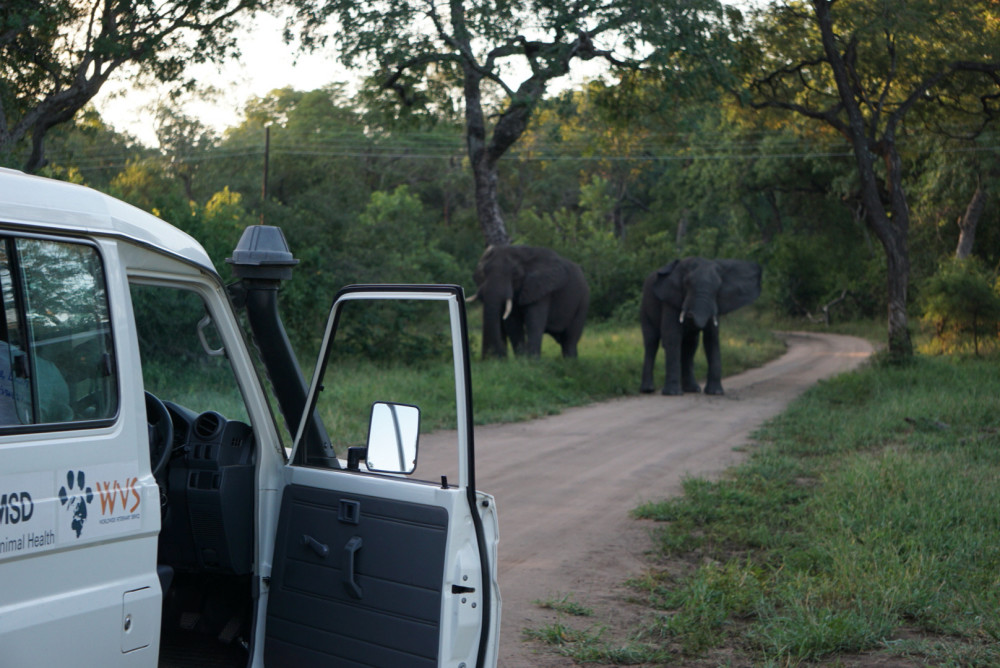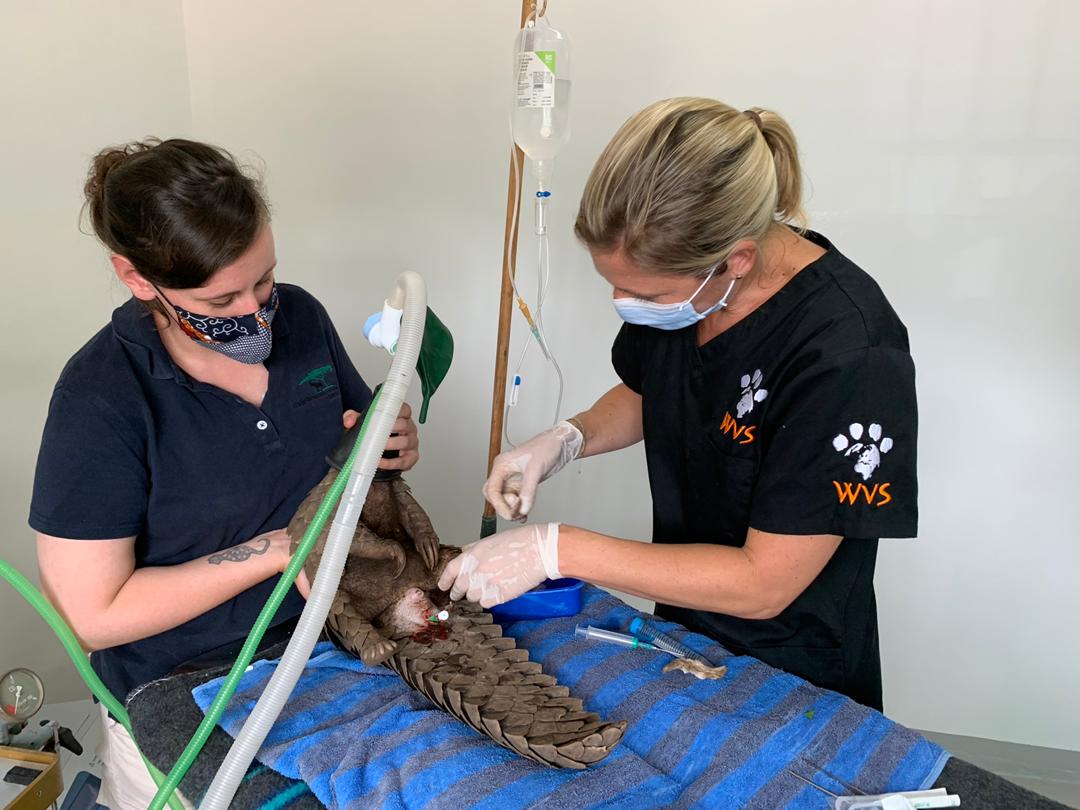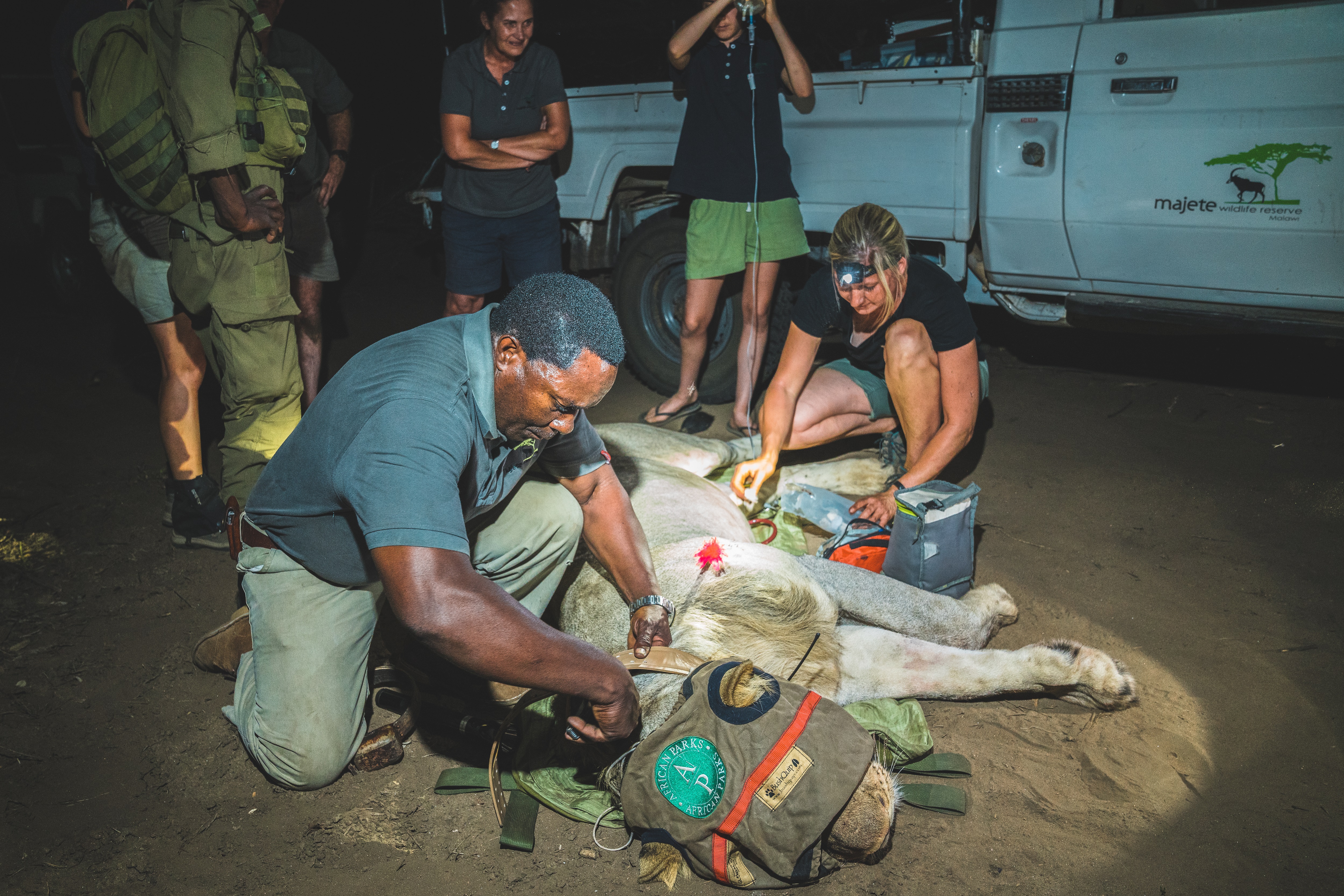Majete Wildlife Reserve
65 km south-west of Blantyre lies the Majete Wildlife Reserve. Like many parts of Africa, the reserve's animal populations were decimated during the late 1970s and 1980s due to poaching and other human activities. Even up until 2003, when the reserve was placed under the management of African Parks in partnership with the Department of National Parks and Wildlife (DNPW), it was still a wasteland. All of Majete’s wildlife had been hunted out – elephants, rhinos, lions, buffalo, even warthog – only a few antelope remained.
Since then, the Majete Wildlife Reserve has been a place of resurgence and restoration. African Parks and Department of National Parks and Wildlife (DNPW) worked with the land and local communities to restore what was lost, carefully reintroducing key species including black rhino, elephant, lion, leopard, cheetah, giraffe, sable antelope, and buffalo.

Photo Credit: African Parks
Vet Care for Conservation
As part of its restoration, we are working closely with the park management to treat sick and injured wildlife, reintroduce and monitor key species, and care for the K9 anti-poaching unit.

In 2021, we also constructed the Majete Veterinary Care Unit, a field clinic within the reserve to store specialized equipment, treat animals on-site, and respond quicker to wildlife emergencies. Since opening, the expert team has treated cheetahs, pangolins, a bushbaby, and zebras, as well as fitted lions, cheetahs, and elephants with monitoring collars.

Treating wildlife in need
Located close by at the BSCPA in Blantyre, our veterinary team is poised to assist with everything from health checks on orphaned serval kittens to critical first aid on a pangolin rescued from poachers to treatment for an injured zebra.
READ MORE: Learn about our mission to conserve wildlife species and protect precious biodiversity through expert vet care.

Reintroducing key species
Rewilding involves restoring what was lost, including the key species. Catching, transporting, and reintroducing wild animals from one area to another is not an easy task, and our vets work with the rangers to ensure the process is safe and stress-free for both animals and people. After decades of their species’ absence, three cheetahs and fourteen African wild dogs have become the area’s newest residents.

Restoring the Balance
Not only are our teams providing expert treatment and care to wildlife, but they are also rehome the animals that don't belong in the Majete Wildlife Reserve. Abandoned and free-roaming domestic cats often end up in the park from surrounding villages. In the wilderness, they miss out on proper care, and as introduced species, they threaten small native wildlife. For the last two years, our vets have been actively trapping, neutering, and rehoming these cats for their health and well-being, and to help the native species thrive. This is how we met Osman, a very friendly wilderness cat.

Caring for anti-poaching dogs
Our job isn’t just to help wildlife thrive within the park; we also care for the four-legged rangers guarding them. After two highly-trained anti-poaching dogs, Milo, a Dutch Shepherd, and Gilly, a Belgian Malinois, joined the team, we are assisting with key aspects of their lives – everything from selecting suitable handlers to providing them with all their routine care.
READ MORE: Meet Dutch and Gilly, the highly-trained anti-poaching dogs we help care for.

Tracking Africa's predators
Monitoring wildlife is equally as important as rescuing and treating animals in need. That’s why we assist the rangers with tracking species of concern, in particular lions, to better understand how to protect the individual lion, their pride, and the people in surrounding villages. This involves working around the clock to find the lions, safely dart them, and gently attach a telemetry collar to track their movements.

READ MORE: Find out about how we are assisting with the monitoring efforts of key wildlife species.
Volunteer in Malawi
Checking camera traps, tracking wildlife with GPS collars, and attending to injured wildlife. It’s all in a day’s work at the Majete Wildlife Reserve. Learn how you can help us protect wildlife across a reserve in Malawi.
Support Conservation
Donate today, and you can help provide expert veterinary care to wildlife around the world, from treating injured zebras in Malawi to caring for sick and orphaned elephants in Myanmar.
*Images in this blog post have been altered to protect the identity of the rangers.